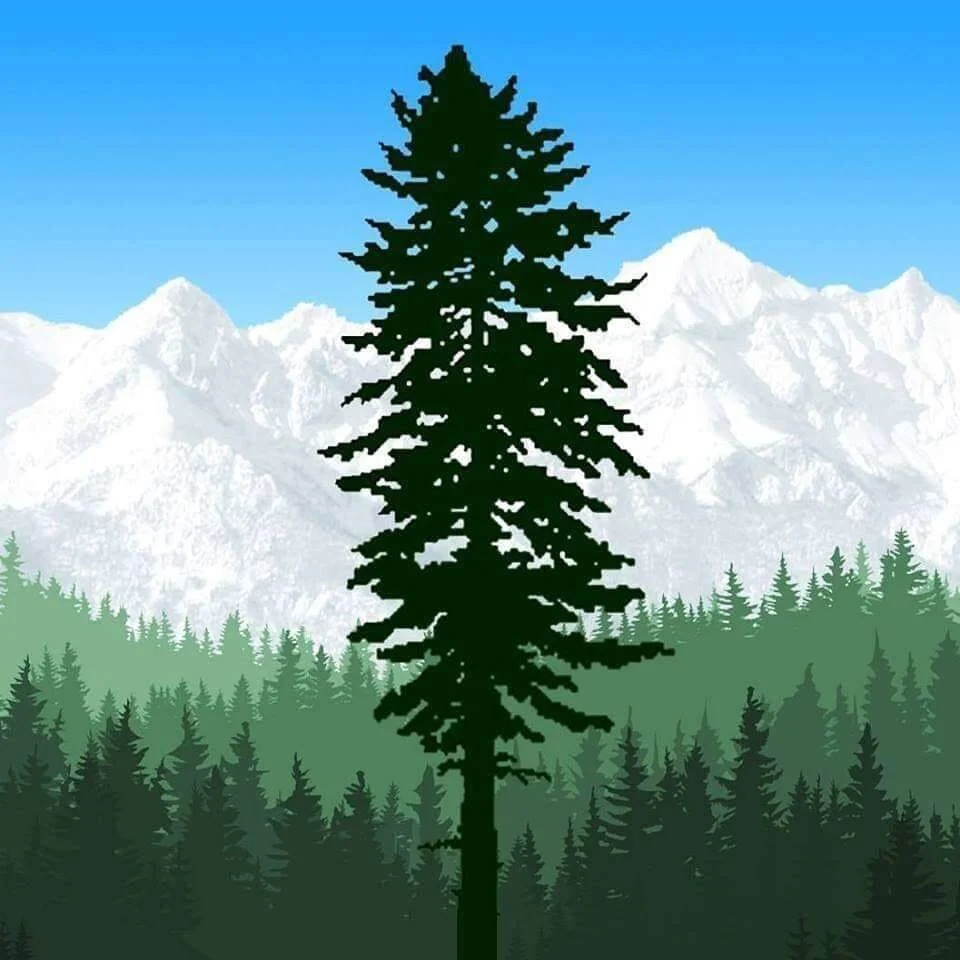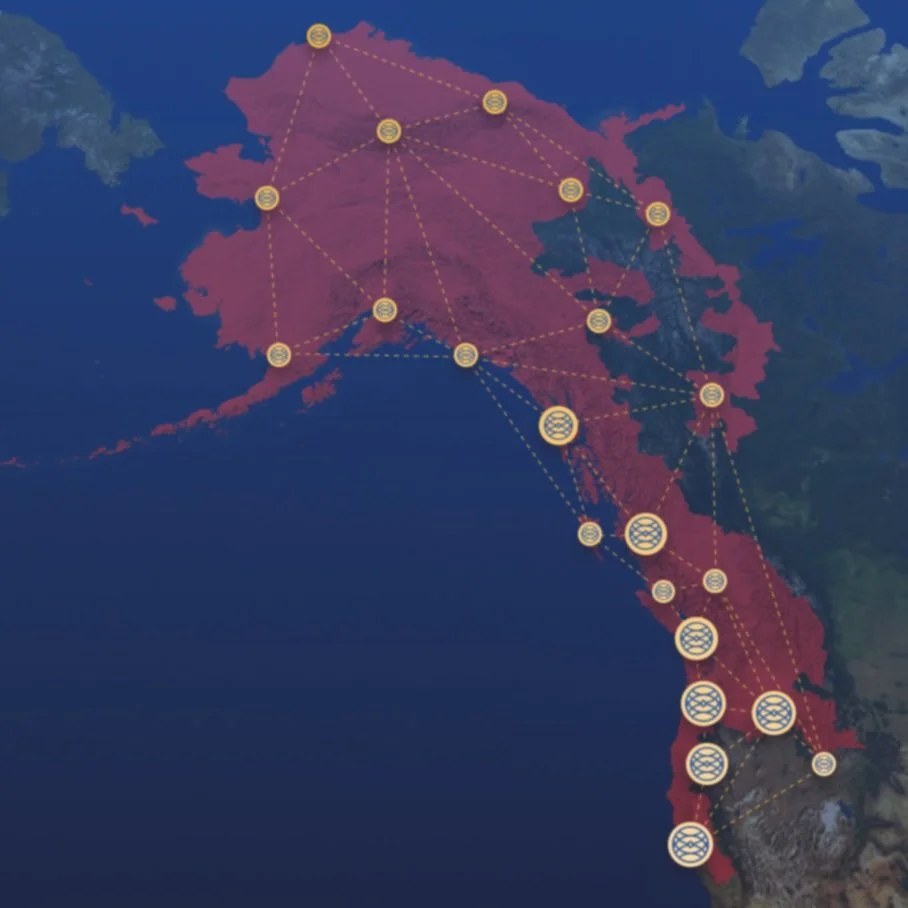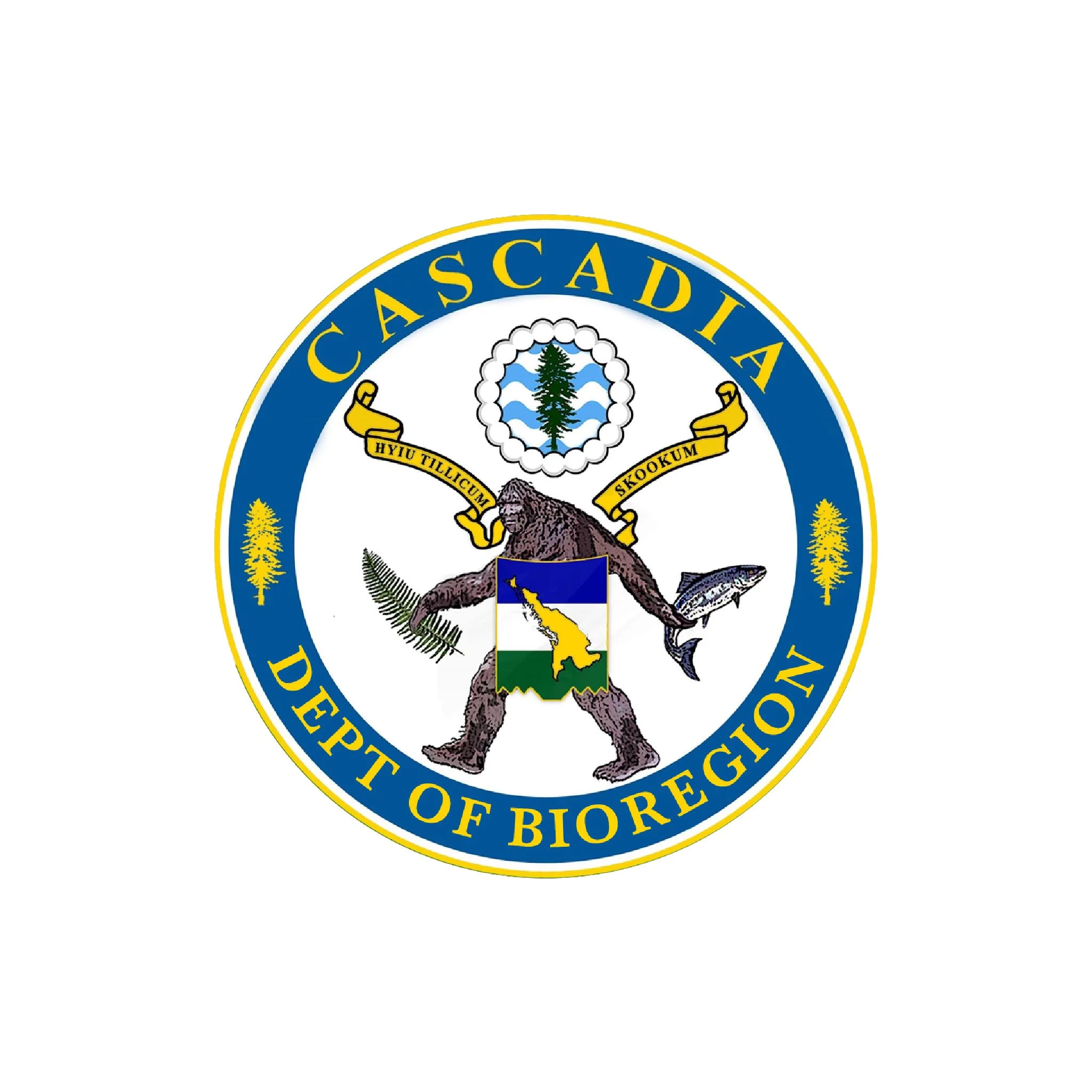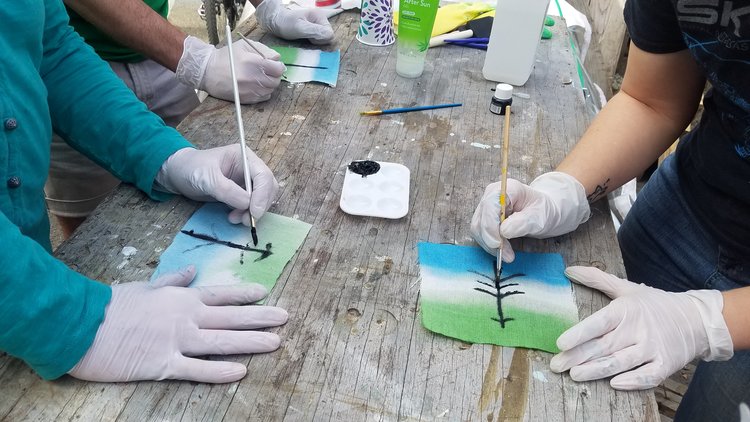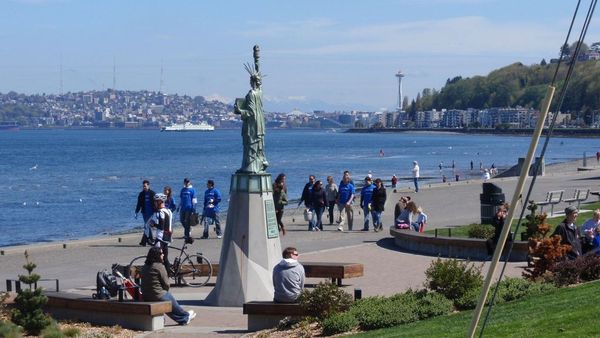With an eye towards the upcoming year, the Cascadia Illahee Department of Indigenous Sovereignty is creating a compendium called Indigenous Voices of Cascadia.
How to Vote Cascadia
Eugene Embassy 1st Cascadia Meeting
Diplomat Newsletter December 2019
Diplomatic Corps Newsletter
December 2019
Towards 2020
Fulfilling our Vision
As our first year of work with the Department of Bioregion comes to a close, a time to reflect and focus arises. Our weekly meetings in Seattle have grown in attendance and scope. From them, many activities and projects have taken place around the bioregion. This year we've hosted a fun run, presented at Cascadia Convergence, made a splash in the Seattle Pride parade anchored by the Cascadia Bus, had a handicraft focused Cascadia Day, hosted Camp Cascadia in the Willapa Hills and had our Cascadian Passport Station pop up around the bioregion. All of this has only been possible because of the dedicated work and enthusiastic volunteerism of you our Diplomats. Cascadian visibility has certainly increased due to all of your efforts, and for this, the sincerest of Thank Yous!
Looking forward, we're optimistic about continuing to grow the Department of Bioregion and the Diplomatic Corps. A meet up the first week of this month in Eugene mobilised a local group of Cascadians there, while contacts in Corvallis and Everett indicate meetings there are forthcoming. We've created some wonderful foundational documents and systems that will help us remain organized as we grow. Perhaps most importantly, our group projects have become more focused around the question "If 10,000 people wished to join our movement tomorrow, how can we be ready?"
It is with that question in our minds that we go into the coming decade. While we can't predict what the coming year and future will bring, we know some of the challenges facing Cascadia, and can prepare to face them with confidence. A general election in the U.S. will doubtlessly have profound effects on public sentiment and offers us an opportunity to highlight how, regardless of the outcome, Cascadia offers a pathway forward with greater democracy, decentralized power structures and a decolonizing spirit. Meanwhile, the advancing threat of a pipeline across British Cascadia threatening our waterways, ecosystem and overrunning indigenous sovereignty creates a rallying cry to protect all of the principles that define Cascadia and all of the life here.
Facing these adversities and opportunities, is what the Department of Bioregion is all about. With a positive message rooted in our love of place, unity through community and a desire to ensure a better future for all life in Cascadia, I look forward to continue building this movement with all of you.
Tolo tillikum, and Rise Cascadia Rise!
“Rise, Cascadia, rise. Protect our waters and skies. Rise, Cascadia, rise. Salmon and orca, cedar and fir. Rise, Cascadia, rise. Crows and otters, sons and daughters. Rise, Cascadia, rise.”
New Diplomat
Claudia Esplugas Masvidal
Catalonian native and recent University of Washington graduate Claudia Esplugas Masvidal has joined the Cascadian Diplomatic Corps bringingextensive experience as a writer, organizer and activist. With a focus on magnifying marginalized voices and innovative organizing methods, we are excited to see her contributions to the Cascadia Movement. Acting as a Diplomat at Large, Claudia's plans for 2020 include international outreach as she traverses the globe conducting interviews with other movement organizers and explores ways to connect them to bioregional principles. Welcome Claudia!
Passport Pop-Up
Last Sunday, Department of Bioregion founders Brandon Letsinger and Trevor Owen took the Cascadia Passport Station to the Seattle Freemont Sunday Market. While there, they issued Cascadian Passports, stickers and patches to the community. Many curious onlookers learned a thing or two about Cascadia and bioregionalism, while other stalwert Cascadians were elated to get their hands on our first issue, first printing Passports. They will be there again this week if you'd like to come by or join in spreading the Cascadian word. Market Info.
Thank you for all that you do diplomats!
Bioregionally yours,
Trevor Owen
Dean of Diplomacy
Washington State Working to Become the Largest Electrified Ferry Fleet in the World
It's time for a Cascadia Political Movement.
Introducing the Department of Bioregion: By Trevor Owen
Cascadia Must Send a Delegation the U.N. Climate Summit
Using A Social Justice Lens to Examine Our Work in the Department of Bioregion
The purpose of this lens is to provide a framework to guide what we do as Diplomats within the Department of Bioregion. Whether the work is posting a blog, creating a project, or leading a round table discussion, it is vital that we are examining that work with a social justice lens. It provides a common language to communicate about our work and ensures we are moving beyond short-term, immediate reaction to long term, thoughtful changes.
Your Guide for Dougsgiving, November 28th
New North American Watershed Maps are here!
De-colonizing Cascadia through Indigenous Storytelling
Diplomatic Corps Newsletter - November 2019
New Cascadia Membership Designs Are Here!
We love Cascadia, believe in bioregionalism as a philosophy to save our region and planet, and are tired of the craziness and insanity that has become commonplace in our world today. We want to be able to directly impact the issues that we care about, and so those living on this planet can have a real life and livelihood better than our own, rather than worse.
Your Chinook Wawa Word of the Day: Burdash
BURDASH
[BUR-dash] or [BAR-dash] — noun.
Meaning: Hermaphrodite; intersex; neuter; genderless.
Origin: Canadian French berdache > Italian bardassa > entering European languages via Moorish Spain from Arabic bardaj, “slave” > Persian bardah, “prisoner”.
In Chinook Wawa, the word burdash was commonly used to refer to accidental or incidental hermaphroditism or lack of gender, such as by castration, “burdash cayoosh” (gelding), and “burdash moos-moos” (steer), or unusual birth, as seen in “burdash kiuatan” (mule).
The word also saw extensive use as a sociological term for those that assumed the gender identity of the opposite sex. Alternative gender roles were widely shared feature of many native cultures, with documented examples in over 155 First Nations in the US and Canada. In about a third of these groups, a formal status also existed for females who undertook a man’s lifestyle, becoming hunters, warriors, and chiefs. They were sometimes referred to with the same term for male berdaches and sometimes with a distinct term—making them, therefore, a fourth gender. (Thus, “third gender” generally refers to male berdaches and sometimes male and female berdaches, while “fourth gender” always refers to female berdaches.)
Because so many First Nation cultures were disrupted, or had disappeared before they were studied by anthropologists, it is not possible to know the absolute frequency of these roles. Those alternative gender roles that have been documented, however, occur in every region of the continent, in every kind of society, and among speakers of every major language group.
“Berdache” had become the accepted anthropological term for these roles despite a rather unlikely etymology; it can be traced back to the Proto-Indo-European root *wela- “to strike, wound,” from which the Old Iranian *varta-, “seized, prisoner,” is derived. In Persia, it referred to a young captive or slave (male or female). The word entered western European languages perhaps from Muslim Spain or as a result of contact with Muslims. By the Renaissance it was current in Italian as bardascia and bardasso, in Spanish as bardaje (or bardaxe), in French as berdache, and in English as “bardash” with the meaning of “catamite”— the younger partner in an age-differentiated homosexual relationship. Over time its meaning began to shift, losing its reference to age and active/passive roles and becoming a general term for male homosexual. In some places, it lost its sexual connotations altogether. By the mid-nineteenth century, its use in Europe lapsed almost completely.
In North America, however, “berdache” continued to be used, but for a quite different purpose. Its first written occurrence in reference to third and fourth gender North American natives is in the 1704 memoir of Deliette. Eventually, its use spread to every part of North America the French entered, becoming a pidgin term used by Euro-Americans and native people alike.
Although there are important variations in berdache roles, they all shared a core set of traits:
Specialized work roles. Male and female berdaches were typically described in terms of their preference and achievements in the work of the “opposite” sex and/or unique activities specific to their identities.
Gender difference. In addition to work preferences, berdaches were distinguished from men and women in terms of temperament, dress, lifestyle, and social roles.
Spiritual sanction. Berdache identity was widely believed to be the result of supernatural intervention in the form of visions or dreams, and/or it was sanctioned by tribal mythology.
Same-sex relations. Berdaches most often formed sexual and emotional relationships with non-berdache members of their own sex.
The first use of the term in an anthropological publication was by Washington Matthews in 1877. In describing Hidatsa miáti he wrote, “Such are called by the French Canadians ‘berdaches.’” The next anthropological use was in J. Owen Dorsey’s 1890 study of Siouan cults. Like Matthews, he described “berdache” as a French Canadian frontier term, and following Alfred Kroeber’s use of the word in his 1902 ethnography of the Arapaho, it became part of standard anthropological terminology when discussing or referencing a person who identifies with any of a variety of gender identities which are not exclusively those of their biological sex.
In recent years the term has come to be considered offensive by many First Nations communities because of its pejorative and non-native etymology. In 1993, a group of anthropologists and natives issued guidelines that formalized these preferences. “Berdache,” they argued, is a term “that has its origins in Western thought and languages.” Scholars were encouraged to drop its use altogether, and instead use the word “two-spirit”, a modern word coined from the Ojibwa niizh manidoowag, or use tribal specific terms for multiple genders. Today the term “two-spirit” is identified as the preferred label of contemporary gay, lesbian, bisexual, and transgender native peoples.
Tsalxhaan - At the Northern border of Cascadia
In a continuation of our Native Placenames series we present Tsalxhaan. This mountain at the norther boundry of the Cascadian bioregion between Alaska and British Columbia represents one of the most dramatic peak faces in the world as it raises to 5,325 feet (4671 meters) a mere 13 miles (20 kilometers) from the sea shore.
Team Cascadia partners with Western Washington Premier League to build future team.
Our New Diplomat Departments Forming for 2020
As we enter into 2020, our Cascadian Diplomats are organizing themselves into six different core departments they have deemed to be the highest priority for building the Cascadia movement, the independence of the Cascadia Bioregion, building a network of bioregional movements around the world, and improve the well being and liveability of our bioregion.
Your Chinook Wawa Word of the Day: Alki
ALKI
[AHL-kee] (historical) or [al-KAI] (modern) — adverb.
Meaning: Eventually; someday; in the future; times to come; presently; directly; later; in a little while; after a while; shortly; will; shall;
Origin: Chinook alkekh > From a Chinookan particle álqi 'will be', ‘later on’
The word “alki”, appeared as the slogan on the seal of Washington Territory, and is the current state motto of Washington, and is usually translated as meaning "by and by", "soon", "hold on", and other connections to the future, or even as a way of saying “not so fast”. In ordinary use it is somewhat equivalent to the Mexican Spanish mañana, meaning sometime in the near future, or an indeterminate time away, perhaps never. It can be used as a verb auxiliary indicating the indefinite future tense, ‘shall’ or ‘will’, as seen in "mamook alki" (to delay; to defer), “wawa alki mamook” (postpone), or the expression "alki nika klatawa" (I will go presently), with the days of the week, and the number of weeks, months and years are also used to designate tenses.
The phrase “laly alki” can be used to mean "in a while" or "sometime soon" or another point in the immediate near future, as seen in "alki nesika klatawa kopa nika boat" (soon we will go in my boat) or "alki nika klatawa" (I will go soon) or "tenas alki" (in a little while).
The phrase "Iskum dolla, alki pay" (to borrow; to take out a loan) literally means get money, pay later, an apt expression if there ever was one. If you are struggling to learn something, you could confidently reassure someone by saying "nika kumtuks alki" ( I will understand eventually), while an appropriate closing to a letter would be “alki weght” (soon again).
The Statue of Liberty, or Lady Liberty, is a replica of the Statue of Liberty, installed at Alki Beach Park, in Seattle, Washington. It was installed in 1952 by the Boy Scouts of America and underwent a significant restoration in 2007 after repeated vandalism had damaged the sculpture.
This word is now firmly connected to Alki Point, the beach on the west Seattle peninsula where the city officially began in late 1851. Historical accounts say that entrepreneur Charles Terry wanted to name the tiny settlement New York, and that someone, either a well-wisher or doubter, added Alki to the name, with the connotation of "maybe someday".
Some time during the twentieth century the pronunciation of the second syllable changed from "kee" to "kai", likely during the prohibition era (1920 to 1933) due to the word’s similarity in sound to the slang term for an alcoholic (‘alkie’ or ‘alky’).
New fundraiser for Forests for Climate Resilience this Saturday in Portland, Oregon.
Join Forests for Climate Resilience and Forest Defenders for a gathering of #Forest Folk, Saturday in Portland, Oregon. The night will feature music, forest updates and movement news!



